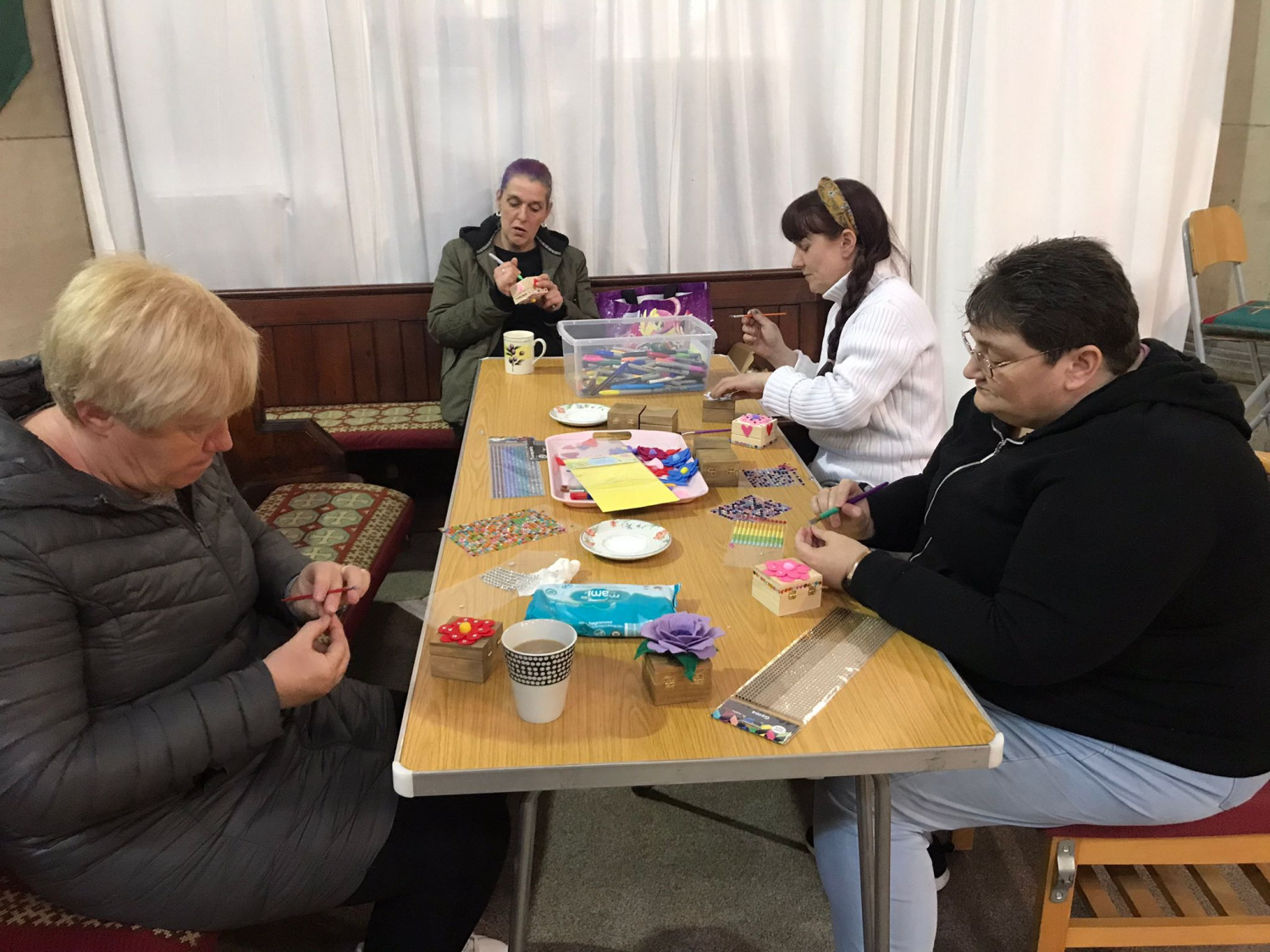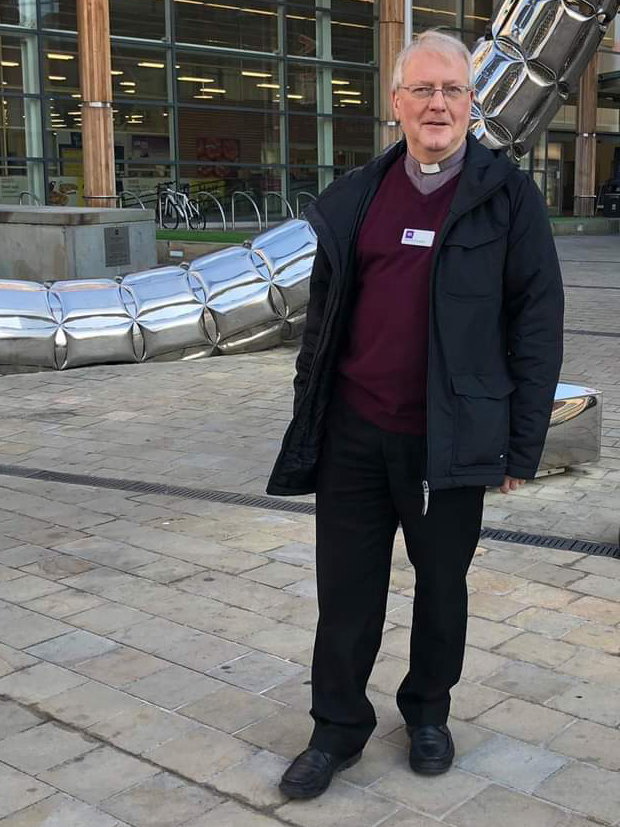The parish priest is most visible at the weekly Sunday service. They stand before a crowd of people and perform a ritual, or say a lot of words, for about an hour, followed by a few minutes at the church door shaking hands. But is that really the sum total of a priest’s working week? Of course not.
 Following staff reorganisation in my paid employment at the local hospital, I could work part time. September 2016, saw me being licensed as part time Priest in Charge, House for Duty.
Following staff reorganisation in my paid employment at the local hospital, I could work part time. September 2016, saw me being licensed as part time Priest in Charge, House for Duty.
In theory the plan was Monday, Tuesday – hospital work. Wednesday, Thursday – church work. Friday - Day off. This made it easier to clearly define ‘ministry days’ and most people understood I was unable to be contacted during my two days at hospital. There were of course a few exceptions and non-church people have no idea that there is such a thing as a part time vicar.
It is challenging and people have high expectations of us. Our lives ought to reflect the faith and values we preach and that is sometimes a lot of pressure.
It's busy. I'm engaged in work that I find meaningful and fulfilling. I am able to share people's best and worst moments. Officiating at services, teaching, preaching, and more administrative work than most people could imagine (at a meeting, one colleague stated with tongue firmly in cheek - ‘so as part time minister you only need to do half of the necessary paper work’). Supervision of colleagues and volunteers, PCC meetings, worrying about budgets, fundraising, and providing leadership to the faith community we serve together.
What does a typical week look like - if there is such a thing?
On Wednesday morning we have a Communion service followed by our Place of Welcome (a coffee morning providing an opportunity to socialise and join in various craft activities). There is always someone wanting to have a chat with the vicar. The afternoon and evening may be taken up with a meeting or to catch up on admin.
Thursday morning could include a Chaplaincy visit to the local shopping centre and the afternoon again catching up emails, admin and replying to messages on answerphone.
There are weddings, baptisms and funerals - not just the services but preparation time and associated visits. Diocesan and Deanery Synod meetings, Ecumenical groups and prayer meetings.
Time is also set aside for regular daily prayer, spiritual retreats and visits to a spiritual director which are as much a part of a priest’s daily duties as any of the ‘standard’ parish clergy tasks.
 There have been many challenges alongside the blessings. It has been and continues to be a privilege to serve in the parish. Each day is different and provides various experiences and scenarios. Working in and with the community in an area of high deprivation has in itself been thought-provoking to say the least. I believe that living in the parish as a member of the congregation for a number of years prior to ordination and knowing the community helped in some respect. Those links have been reinforced. Community work is very important and I am a Governor at the local primary school, a trustee with a volunteer group managing the park and I was involved in the setting up of a local foodbank. I also have a role as Chaplain to a local shopping centre on a monthly basis and of course unpaid.
There have been many challenges alongside the blessings. It has been and continues to be a privilege to serve in the parish. Each day is different and provides various experiences and scenarios. Working in and with the community in an area of high deprivation has in itself been thought-provoking to say the least. I believe that living in the parish as a member of the congregation for a number of years prior to ordination and knowing the community helped in some respect. Those links have been reinforced. Community work is very important and I am a Governor at the local primary school, a trustee with a volunteer group managing the park and I was involved in the setting up of a local foodbank. I also have a role as Chaplain to a local shopping centre on a monthly basis and of course unpaid.
More and more advertisements in the church newspapers appear to be for house-for-duty positions. They ask for commitment, vision, enthusiasm, and the willingness to engage in every aspect of the life of the parish. A difficulty is convincing people to be realistic in their expectations and to help them understand that whatever previous vicars have delivered in a full time post, a two-day working week cannot be the same.
So what is the life of a parish priest really like?
It depends. It is extremely difficult to work to a strict named two days a week, plus Sundays, as is often written in the job description. I think it is called being flexible and realistic.
People in the parish do not always understand that their priest is still working, even if they are not visible. Writing sermons, preparing special services: is that work? If I sit at the keyboard for an afternoon, writing my sermon, or putting a school service together, why am I not out visiting?
Most clergy work extremely hard, putting in long hours, simply because there is more work to be done in Christ’s name than anyone can possibly do. The daily duties of a parish priest may be totally different from one parish to another, depending on the size and character of the parish. It varies, too, depending upon your own set of skills and the gifts that God has given specifically to you.
In the year I was ordained deacon, my wife, already authorised to distribute Home Communion and carrying out much of the visiting in the parish, was licensed as a Reader and trained in funeral ministry which has proved to be of great benefit to the parish and Deanery. We now have another Reader very active in his ministry including taking funerals. This enables me to focus on other areas of ministry in my two days.
The Covid pandemic and its impact on the church was a huge learning experience as we were all forced into a rapid period of change and being adaptable. Although the church buildings were closed, the church as a body was still very active – producing and delivering service booklets, food parcels, telephoning and visiting (within the guidelines)etc.
What does it mean to the average parishioner? They see me in a dog collar therefore I am a vicar.
House for Duty priests, like all Self Supporting colleagues, are no less a priest because they are not paid a stipend.